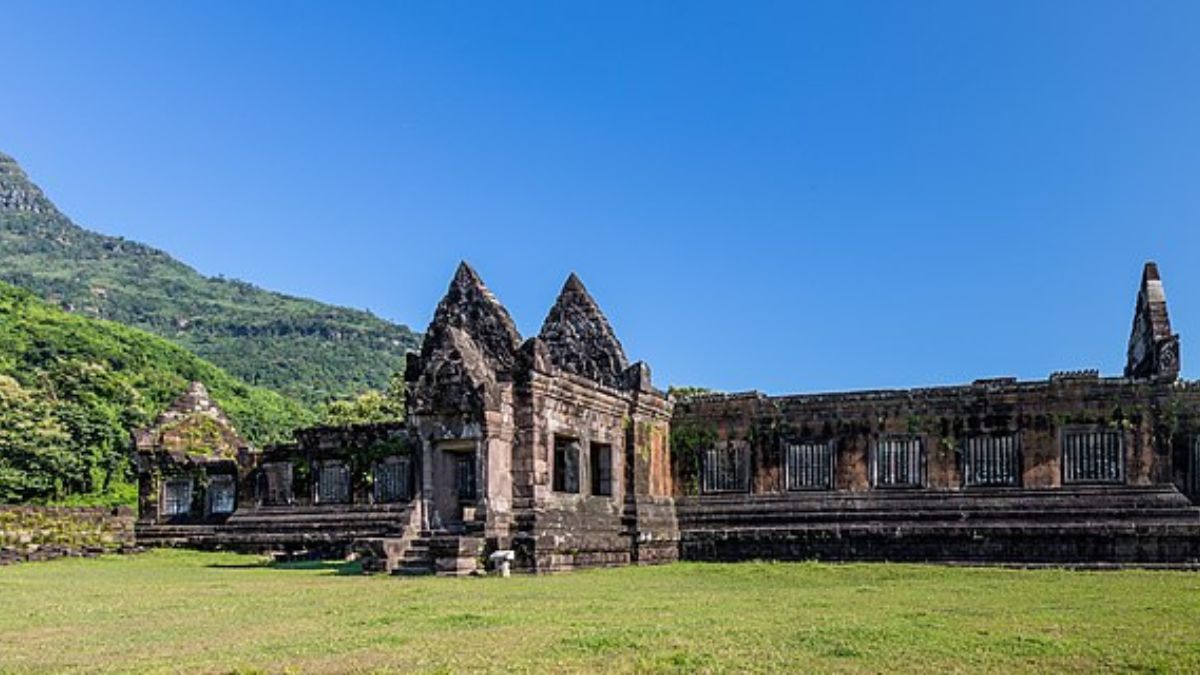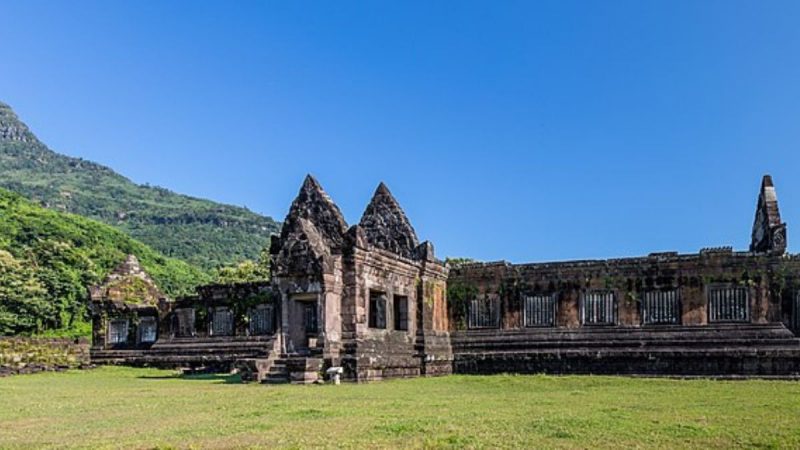Imagine discovering a ruined stone structure resembling the architecture of Hindu temples with mythological scriptures, surrounded by green terrains, lush hills and a pristine water body nearby. It is away from all the hustle and bustle of the racing world with just the sounds of birds chirping, winds blowing and leaves rustling! Sounds heavenly, right? Vat Phou in Laos is just like the exact scenario described above! With the recent news of restoration work by the Archeological Survey of India (ASI), let us know what is so unique about it.
Built By Khmer Kings, Vat Phou Is A 5th-Century Hindu Temple In Laos
🔴🔵KANTO SIVIO CHANNEL🔴🔵
今週ご紹介するのは、、ラオスの世界遺産【ワット・プー Vat Phou 】😙🌿
ワット・プーとは「山寺」という意味で、11~13世紀に建てられた寺院🕌📜その壁などを美しく飾ったレリーフに、ヒンドゥー教の名残が見られます👀💯#おいでよラオス pic.twitter.com/NOskVQ5u2e
— 🇱🇦学生団体関東SIVIO (@kanto_sivio) July 31, 2018
India and Laos have friendly ties and continue to bond on culture, heritage, religion and history. Through temple ruins and scriptures, it was evident that the Khmer Kings were influenced by the Hindu gods and built a Khmer-style stone temple, Vat Phou. This was done to honour the Hindu gods in the fifth century in Muang Champassak near the holy Phu Passak mountains.
The Khmer folks constructed Vat Phou as a Hindu temple for Lord Shiva with detailed scriptures of Lord Brahma, Lord Vishnu, Lord Mahesh, and Goddess Parvati along with dancing deities. There are engraved stories from the legendary Mahabharata on the facades and roofs of the temples! You may also come across a destroyed shrine dedicated to Lord Shiva’s Mount Nandi with scriptures of nagas.
Also Read: Ancient Shiva Temples In Kashmir That Take You Back In Time
When Did It Become A Buddhist Temple?
Vat Phou Temple, Laos 🇱🇦 pic.twitter.com/L5Atf4Qm0o
— The Dark Nature (@__darknature__) October 7, 2020
After visiting the remains of this Hindu temple, head over to the plateau of Vat Phou where you can see some of the foundations of the former or ruined temples. Research says that Vat Phou once housed a large Shiva linga, watered down by the springs of the hill nearby. Over time, Buddhism spread in Southeast Asia and slowly, the entire Khmer empire fell. During the 13th century, the linga was replaced by a Buddha statue and it turned into a Buddhist temple and eventually became a ruin in Laos.
Recently, Vat Phou has been in the process of restoration through the skilful brains and hands at the ASI. This is done in light of the growing healthy relations between India and Laos. It has been a UNESCO World Heritage Site since 2001 and a Memorandum of Understanding (MoU) was signed for the restoration of the temple in Laos in 2007. Since then, little by little the restoration has been under process.
Also Read: Maluti In Jharkhand Is Home To 17th Century Unique Terracotta Temples; Only 72 Out Of 108 Remain
Did you know about the uniqueness of Vat Phou?
Cover Image Courtesy: Wikimedia Commons
For more such snackable content, interesting discoveries and the latest updates on food, travel and experiences in your city, download the Curly Tales App. Download HERE.





